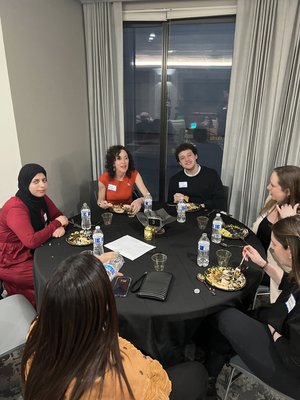Mohammad J. Rahimi was born and raised in Afghanistan, where he witnessed a society plagued by war, a lack of good governance, and a faulty legal system. To seek change, he decided to be on the frontlines — attending law school, working as a National Assembly Fellow, founding a non-profit to improve the lives of Afghan students, and working with the U.S. Army as a lawyer and ally. He faced many obstacles and immigrated to the U.S., where he continued his education and found hope for a better life. Now, after gaining experience in social justice and civil rights, Mohamed shares his story by reflecting on his journey and desire for social justice.
I grew up in Afghanistan, where the lack of rule of law, good governance, democracy, freedom and the existence of domestic war between tribes and political parties contributed to a devastating political and economic environment. In recalling my childhood, the lack of jobs, trades, and businesses pushed people to immigrate to foreign countries. In addition, informal or traditional punishment systems became the only method of solving legal and criminal disputes, and judgeships were mainly held by illiterate local and tribal leaders whose decisions were ultimately the law of the land. Along with the dangers of living in an unsafe environment, those terrible systems made me think about ways Afghans could change this inhumane system.
Finding the environment troubling and in dire need of reform, I attended law school at Herat University because I wanted to become part of a lasting solution. During my final year of law school, I served as an intern at the International Legal Foundation of Afghanistan. After finishing my law studies in 2008, I established a nonprofit called the Association of Youth and Students, in which I sought to improve the lives of other Afghan students through civil seminars, conferences, and educational centers.
One year later, in 2009, I won a spot in the coveted, National Assembly Fellowship Program. The program was established by the National Assembly of Afghanistan with assistance from USAID. This opportunity enabled me to work closely with lawmakers and the legislative committee. After completion of the fellowship program, I was recruited by the U.S. Army as an attorney and ally to the U.S. Government. Initially, I felt like my dream came true — that I would assist my country with rebuilding efforts. Instead, that dream came crashing down. What I thought would be democracy and justice became mistrust and a lack of understanding between the U.S. Army and the Afghan people. I received threatening calls and letters from the enemy. I cannot forget those days and nights. Still, I never gave up on my dream. I had a mission to improve the rule of law in Afghanistan, and progress, albeit very slow and difficult, was something I had to constantly work towards. I went on to work as Chief of Staff to the Governor and later, to the Lieutenant Governor, and after such a tumultuous early start to my legal career, I received my United States Visa.
My passion for serving people and fighting for peace, human rights, and democracy only grew during my time in the United States. It was not an easy move by any means, however. I faced discrimination based on my name, religion, and ethnicity. I recall being frightened and confused — I came to the United States to escape threats and insecurity — but even here I felt disrespected and unsafe.
Life started to change for the better when I continued my legal education at the McGeorge School of Law in Sacramento. I learned a lot at McGeorge, which is a diverse environment filled with qualified and talented students from all around the world. I was able to meet people of different races and ethnicities. Through McGeorge, I expanded my legal knowledge and experience, and even served as an intern at the California State Assembly. Most importantly, my voice as an immigrant grew stronger. Through the challenges I have faced in my lifetime, I am now more confident to continue my career in social justice to push change and equality. I will continue to fight for what I believe in. Now, I am proud to say that I am positively contributing to society. To everyone in the world working to improve social justice and the rule of law, let’s keep fighting.


